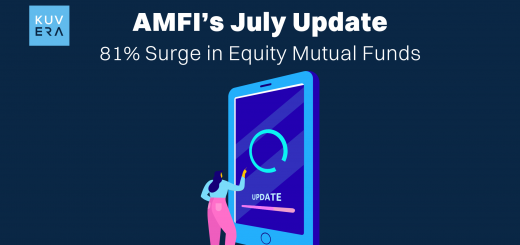Intermediaries play a crucial and significant role in promoting the sale of mutual funds. Therefore, it is crucial that those involved in selling mutual funds uphold the highest standards of expertise, conduct, and ethics. The future development of the mutual fund industry will be greatly influenced by their well-being, commitment to quality, and business practices.
The Association of Mutual Funds in India (AMFI) established the procedure to register intermediaries who passed the certification exam as AMFI Registered Mutual Fund Distributors (ARMFD), setting the groundwork for a structured business and allocating a special code – the AMFI Registration Number (ARN) – along with an identity card. The Securities and Exchange Board of India (SEBI), recognising the significance of AMFI’s initiative, has mandated that all intermediaries register with AMFI and pass the AMFI certification test.
As a result, upon completing the NISM Certification Test, all National Institute of Securities Markets (NISM) Certified Intermediaries participating in the marketing and sale of mutual fund schemes are required to register with AMFI. The minimum age to apply for an ARN is 18 years. The mutual funds will not be able to deal with intermediaries who are not registered with AMFI and have obtained an ARN. Only licensed distributors and mutual fund specialists with an ARN code are permitted to sell mutual funds.
AMFI Registration Number (ARN)
The ARN is a code or number assigned to a qualified mutual fund distributor or an expert who can use it to trade in various mutual fund schemes. Only a fund distributor or an expert who has been allotted an ARN can sell or deal in mutual funds.
Mutual funds have the potential to significantly boost an investor’s wealth. They can, however, deplete an investor’s life savings and are highly volatile. Therefore, it is imperative that each component of this investment be regulated by a competent body, in this case, SEBI.
The Association of Mutual Funds in India (AMFI) introduced the need for an ARN with the goal of requiring those who sell or market mutual funds to uphold the highest standards of expertise and ethics. SEBI established the requirement for ARN because it recognised the significance of the need for reputable and high-quality intermediaries in mutual fund investing. A registered ARN will make it easier to track the transactions made by distributors on behalf of investors, protecting their interests and upholding mutual fund investing standards. This will support India’s efforts to develop a strong mutual fund sector.
Who Can Apply For ARN Code?
SEBI and AMFI have established requirements for obtaining an ARN code. The following individuals are qualified to receive an ARN in accordance with these guidelines:
- Any of the following individuals who are at least 18 years old and have passed the NISM (National Institute of Securities Market) Certification
-
- Individuals agents
- Brokers
- Other intermediaries engaged in selling mutual funds
- Senior citizens who have attended Continuing Professional Education (CPE)
These applicants are required to follow the code of conduct and any additional requirements listed on the application form.
In addition to the aforementioned applications, ARN can be issued to corporates who are engaged in the business of selling mutual funds. These organizations must submit an ARN application to the AMFI and make the required undertakings on the application form, including abiding by the established code of conduct.
Other Important Points:
- Individual applicants and senior citizens would receive a photo ID card containing their name, address, and the number of years the ARN is valid. In contrast, corporations would receive a letter of registration bearing their name, the number of years the ARN is valid, and their unique ARN.
- Employees will receive Employee Unique Identification Number (EUIN) cards that include their EUIN, name, photo, and the EUIN’s validity period.
- The application for corporate employee registration must be submitted along with the application for corporate body registration.
- A passing certificate for the “NISM – Series V-A: Mutual Fund Distribution Examination” issued by the National Institute of Securities Market (NISM) has a three-year validity term.
- Additionally, the CPE certificate that NISM issues have a three-year validity period.
- Accordingly, ARN granted to individuals, senior citizens, and employees against such certificates should have a validity period from the date of submission of the ARN registration application up to the validity date specified on the passing certificate/CPE certificate, assuming the application is in order.
- The Letter of Registration is valid for 3 years in the case of corporate entities.
- No distributor may not possess more than one ARN card or Letter of Registration.
- The intermediaries should approach the AMCs for empanelment after getting ARN since only after empanelling with them can they canvass the mutual fund business of that particular AMC.
- Registered intermediaries can be de-registered as the ultimate censure for the following reasons:
-
- Code of Conduct Violation
- Being charged by a judicial or regulatory authority with serious offences
- A consumer court upholds complaints of gross negligence.
How To Get An ARN Code?
Depending on the scenario, the ARN code requires either the National Institute of Securities Markets (NISM) or Continuing Professional Education (CPE) certification. The applicant has the option to apply for the ARN Number online or offline after receiving the certificate. On behalf of the Association of Mutual Funds in India, M/s Computer Age Management Services Pvt. Ltd. (CAMS) processes registrations and issues ARN. The steps for applying each mode are described below.
-
Online Mode
The steps for requesting an ARN Code online are given below:
-
- Register for the gateway on the CAMS website.
- The candidates must obtain an application form and submit it along with a (Know Your Distributor) KYD in order to request an ARN code.
- The candidate will then have to submit the necessary documentation to complete the application.
- After making the necessary payments, the applicant will get a letter of registration and a photo ID through the mail along with the ARN code.
-
Offline Mode
The steps for requesting an ARN Code offline are given below:
-
- Visit the nearest CAMS office in order to obtain an application form.
- Fill out the application form with the necessary details, and submit it together with the necessary documents.
- The applicant must then pay the ARN Code fees.
- Following that, the Letter of Registration and/or photo ID will be sent to the applicant’s registered address.
Renewal Application
A renewal application must be submitted no later than six months before an ARN’s or Employee Unique Identification Number’s (EUIN’s) expiration date. If the renewal application is submitted before the ARN/validity EUIN’s term expires and it is approved, the validity period of the ARN/EUIN will continue after renewal.
If the renewal application is filed after the ARN/ EUIN has expired, the validity of the renewed ARN/ EUIN will begin on the date the renewal application is submitted and will be valid until the expiration date listed on the NISM passing certificate/ CPE Certificate for individuals/ senior citizens/ employees. When a corporate ARN holder submits an application for ARN renewal, the letter of registration must be renewed for a further three years.
Holders of an ARN must submit an application in the format specified and are required to follow KYD guidelines. Applications should be submitted to Computer Age Management Services Limited (CAMS) POS together with a demand draft for the necessary fee amount and the necessary documents. The demand draft must be written in favour of the “Association of Mutual Funds in India” and made payable at the CAMS-POS where the application is submitted.
For individuals and employees, ARN/EUIN renewal is conditional on passing the NISM Mutual Fund Distributors Certification Examination or participating in the Continuing Professional Education (CPE) program, both of which are offered by NISM. Senior citizens are required to attend CPE. Individuals, senior citizens, and employees must submit an application for the renewal of their ARN or EUIN together with a copy of their certificate of passing the NISM Mutual Fund Distributors Certification Examination/CPE Certificate and two colour photos the size of a postage stamp.
The Benefits Of The ARN Code in Mutual Funds
- An ARN in a mutual fund is required for both the investor and the intermediary.
- Distributors, brokers, fund agents, and mutual fund advisors can all use it as a means of identification.
- It makes it simpler to keep track of the assets the intermediary has accumulated.
- ARN number is an aid in calculating the brokerage of the intermediary.
- Investors are safeguarded against fraud and scams since these intermediaries are regulated by SEBI regulations and are expected to follow a code of conduct.
- After receiving an ARN Code, an intermediary is able to distribute mutual funds legally.
- The ARN Code provides investors with the confidence that the intermediary is a registered fund advisor and will do business in compliance with the AMFI’s code of conduct.
The Association of Mutual Funds in India (AMFI)
The Association of Mutual Funds in India (AMFI) is committed to the growth of the Indian mutual fund industry along professional, ethical, and moral lines. It also works to raise and maintain standards in all areas, with the goal of safeguarding and advancing the interests of mutual funds and the people who own their units.
The Asset Management Companies of SEBI Registered Mutual Funds in India Association (AMFI) was established on August 22, 1995, as a non-profit organization. Currently, its members include 43 Asset Management Companies that are listed with SEBI.
Roles Of Association of Mutual Funds India
- A major responsibility of AMFI is to protect investors’ requirements and interests. It includes policies and rules so investors don’t have problems when buying or selling mutual funds. Additionally, it keeps an eye on the transactions to prevent investors from being taken advantage of when they redeem their profits.
- AMFI also ensures that all the transactions happening are transparent. It keeps a tight eye on transactional numbers and the sources of funding and makes sure that both sides provide accurate documentation.
- Additionally, it functions as a marketing channel by attracting new investors. Since its formation, it has made constant attempts to increase investors’ access to mutual funds. The pragmatic shift of the mutual fund industry to major online platforms can be seen as a significant step toward the mutual fund industry.
- Additionally, AMFI makes sure that all parties engaged in the mutual fund industry are legitimate individuals or entities. This is accomplished by making it a requirement that all AMCs, advisors, intermediaries, investors, and other interested parties register themselves before beginning any type of trading.
Objectives Of AMFI
A few of their objectives are:
- AMFI seeks to establish consistent, ethical, and professional standards for the mutual fund sector as a whole. To keep the trust of trustees, fund companies, and individual investors in mutual funds. Additionally, this is done to encourage ethical business practices across the country.
- It strives to make sure that people and companies adhere to the guidelines regulated by it.
- AMFI coordinates with SEBI to guarantee that the stock markets and mutual funds associated with them operate in tandem.
- Additionally, AMFI wants to raise as much awareness as it can about the risks of investing in mutual funds. In order to dispel common misconceptions that lead people to believe that mutual funds are risk-free or provide exceptional returns, they use a variety of media, including television advertisements, social media, events, etc.
- AMFI represents the interests of a common person before numerous financial institutions, including the Securities Exchange Board of India (SEBI), Reserve Bank of India (RBI), finance ministry, and other institutions involved in the money market.
Conclusion
The Association of Mutual Funds in India (AMFI) is essential in developing ethical and fair policies for the Indian mutual fund industry. Over the past 20 years, it has significantly helped in defending the rights of fund houses and investors. To encourage more people to invest in mutual funds and participate in the mutual fund sector, they have expanded investment accessibility and transparency.
However, only authorised distributors and mutual fund experts with an ARN code or AMFI registration number are permitted to sell mutual funds.
AMFI wishes to encourage new and young people all throughout the country to reach out to a sizable base of small savers, particularly in Tier II and III cities and towns, and encourage them to invest their money in mutual funds.
Frequently Asked Questions (FAQs)
-
What are the documents needed to apply for the ARN Code?
The following paperwork must be submitted by the applicant in order to apply for the ARN number in a mutual fund:
- A self-attested duplicate of the NISM or CPE certificate
- Proof of identity (a copy of the Aadhaar card, a copy of the PAN card)
- Statement of bank accounts
- Passport sized pictures
Interested in how we think about the markets?
Read more: Zen And The Art Of Investing
Watch/hear on YouTube:
Start investing through a platform that brings goal planning and investing to your fingertips. Visit Kuvera.in to discover Direct Plans and Fixed Deposits and start investing today.
#MutualFundSahiHai #KuveraSabseSahiHai!











